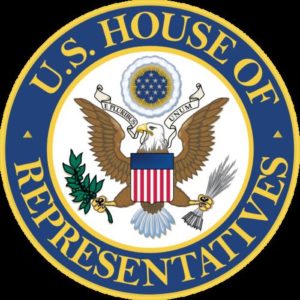By Jim Ellis — Nov. 23, 2022
Senate
California: Rep. Schiff Exploring Senate Race — With most people believing that Sen. Dianne Feinstein (D) will not seek re-election in 2024 when she will be 91 years of age, Southern California Rep. Adam Schiff (D-Burbank) said that he is considering launching a US Senate exploratory committee. Schiff is already in a battle to keep his seat on the Intelligence Committee after Rep. Kevin McCarthy (R-CA) — should he be elected Speaker — said that Schiff and Rep. Eric Swalwell (D-CA) would be removed from the panel.Should Sen. Feinstein retire, we will see a strong Democratic battle to replace her. In California’s jungle primary system, it is likely that two Democrats would advance into the general election. One thing is certain: Rep. Schiff would be able to raise the money to compete. In his bid for re-election to the House in the current cycle, he raised more than $22 million.
House
CA-22: Rep. David Valadao Wins Re-election — The Associated Press, late Monday afternoon Pacific time, projected that Rep. David Valadao (R-Hanford) had defeated state Assemblyman Rudy Salas (D-Bakersfield) in their hard-fought congressional race. This, despite Rep. Valadao finishing a distant second on the jungle primary back in June when he received only 26 percent of the vote versus Salas’ 45 percent in a field of four candidates in the most Democratic congressional district in the country that elects a Republican to the House.
According to the California Secretary of State’s official count, Valadao held a 3,381 vote lead with just over 100,000 votes counted. Based upon the number of outstanding ballots and where they are from, the AP made the unofficial projection. The Valadao victory gives the Republicans 220 members in the new Congress as compared to 212 Democrats. Three races, two in California and one in Alaska, remain uncalled. Republicans lead in both Golden State races, Democrats in the Last Frontier.
NC-13: Hines Files 2024 Committee — The court-drawn North Carolina congressional map featured a new 13th District that contained the southern Raleigh suburbs, the city of Fayetteville, and Republican Johnston County, which made the CD a toss-up seat. Democratic state Sen. Wiley Nickel carried the district with a 52-48 percent margin, defeating Republican Bo Hines, who received the Trump endorsement in the GOP primary.
Hines, 27, was a former football player for North Carolina State University, but had no other particular ties to the region and actually planned to run in another district before this open seat was drawn. He filed a new 2024 committee on Monday, presumably sending signals that he intends to run again.
Hines did not receive particularly favorable marks as a candidate, and there is a good chance we will see a new North Carolina map drawn after the Supreme Court rules on the state’s partisan gerrymandering case before them. Even if Hines decides to run, he can expect heavy competition in the Republican primary before getting another opportunity of opposing Rep-Elect Nickel.
WV-2: State Treasurer Announces for House — Rep. Alex Mooney (R-Charles Town) already announcing that he will challenge Sen. Joe Manchin (D) in the next election year has ignited the first of what promises to be political musical chairs for what will be an open 2nd Congressional District. State Treasurer Riley Moore (R) announced his congressional candidacy Monday and is the first major candidate to enter the 2024 race. Rep. Mooney’s successor will likely be decided in the Republican primary in a seat that the FiveThirtyEight data organization rates as R+34.







